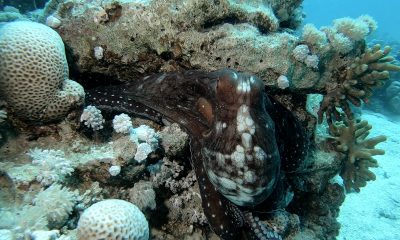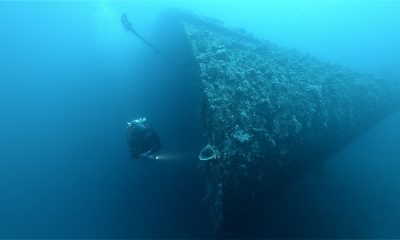Marine Life & Conservation
How do you know a business is TRUE eco-tourism?
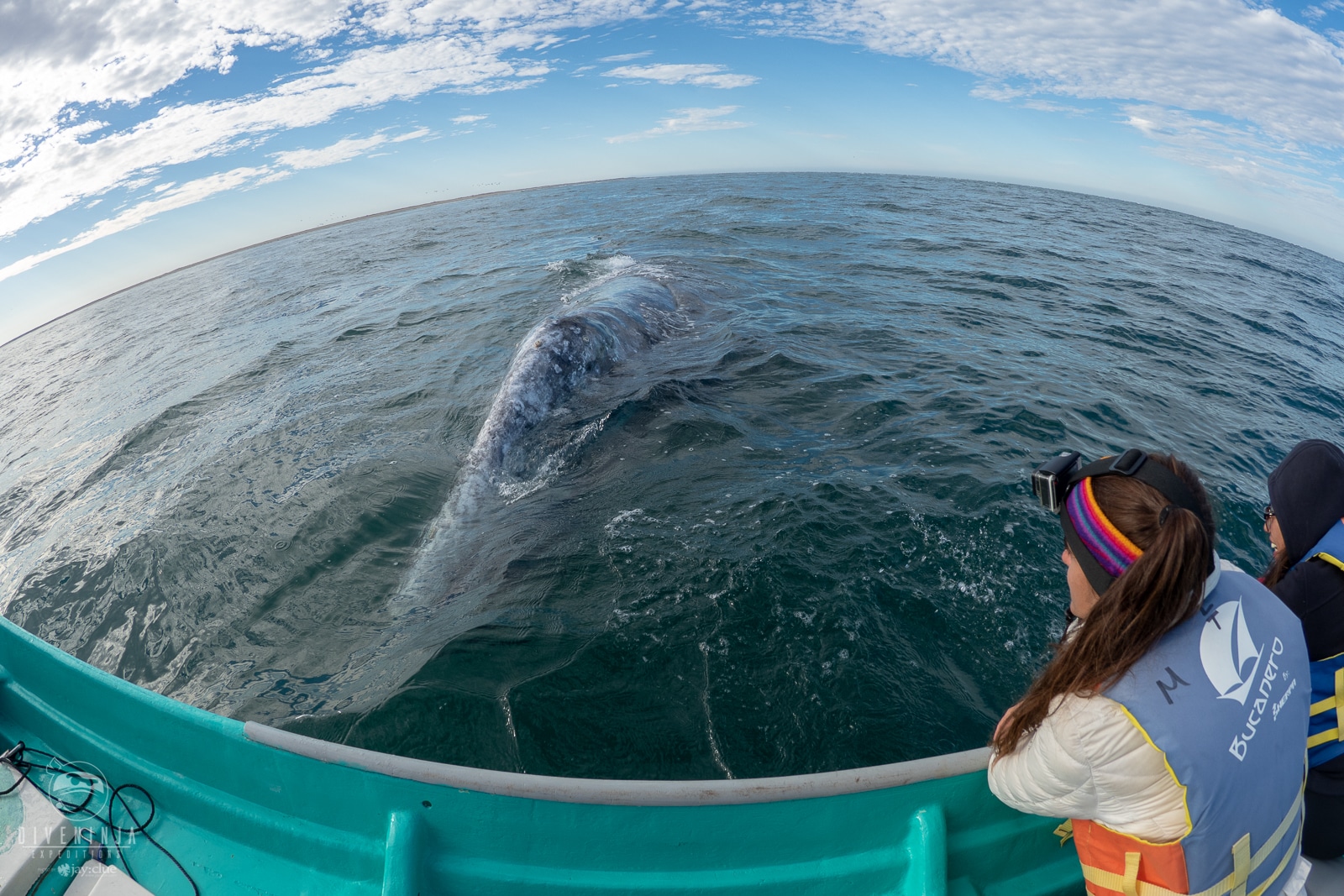
A guest article from marine biologist María Laura Marcías…
Given the current environmental problems we can all pretty much agree that we are facing a crisis. That is not something we want to think about when making plans for our next vacation. But you can help when planning your next holiday by considering choosing ecotourism activities. It is the best way to truly know a place. Exploring its natural and cultural resources, all while reducing your ecological footprint to a minimum in the process, or even better, having a positive impact.
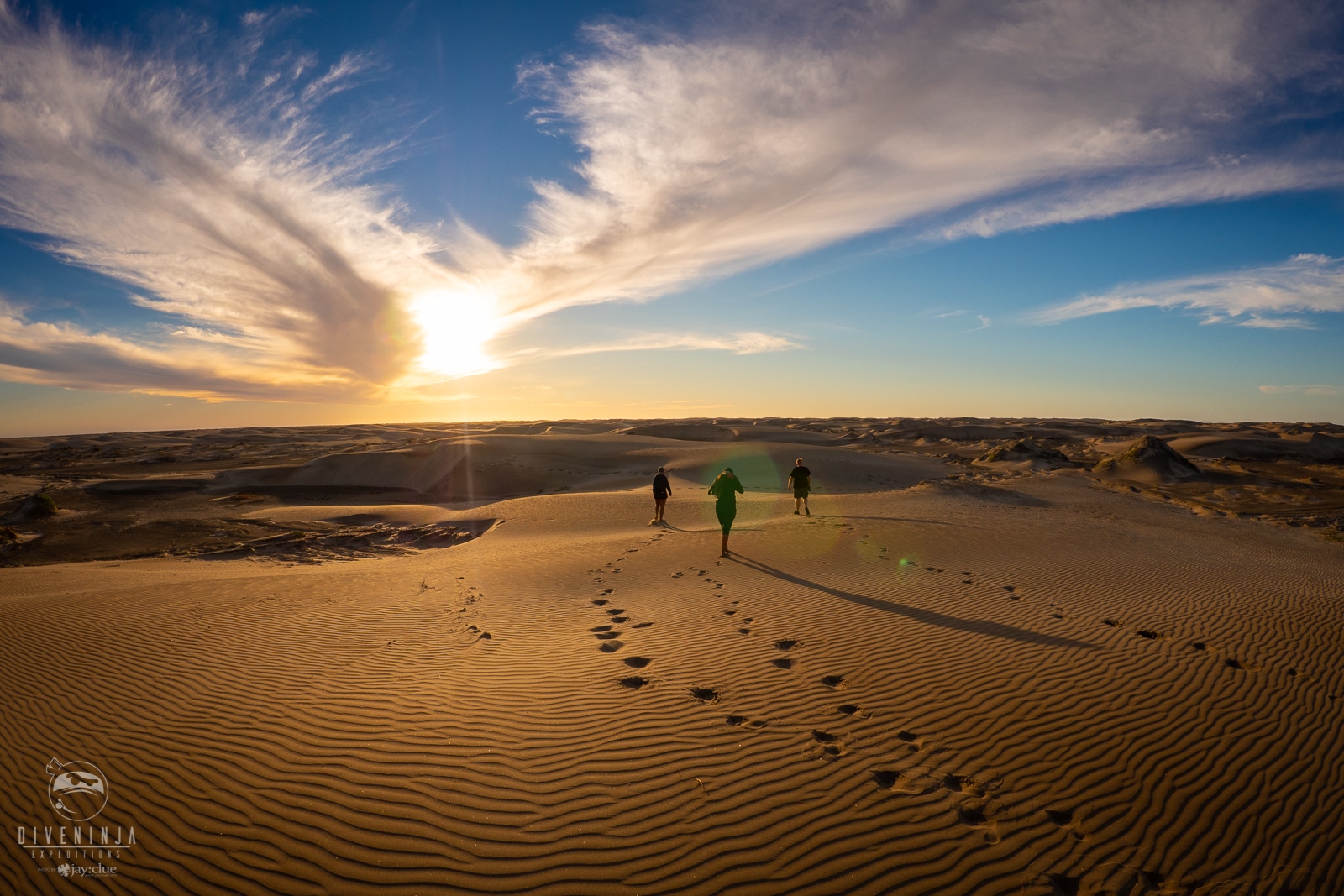
Baja California Sur (BCS) is a Mexican state with a strong touristic component from its foundation given that it has a beautiful and diverse natural and cultural heritage. With so many offers, sometimes it’s difficult to choose a good company for your trip. How do you know they behave well to the environment? In many countries there are eco-labels provided by international regulations or local nongovernmental organizations (NGOs), but this is rarely the case here. Moreover, there is an abuse of the word “eco” for marketing purposes.
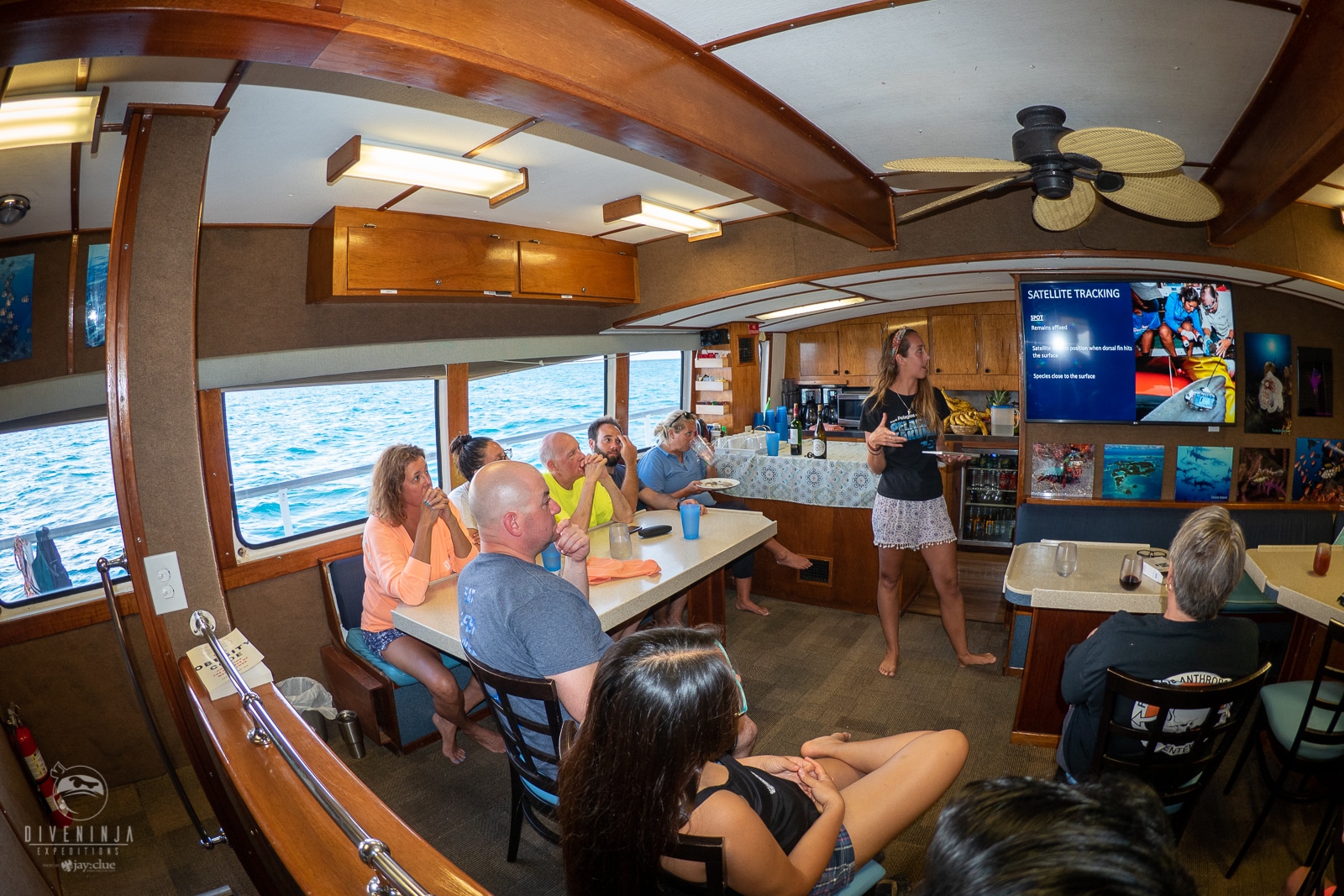
To begin, ecotourism activities must meet the following principles:
1. involve travel to natural destinations, 2. minimize negative impacts in both the environment and the local communities, 3. build environmental awareness, 4. provide direct benefits for conservation, 5. provide financial benefits and empowerment for local people, 6. respect local culture.

My name is Maru. I’m a biologist & science communicator from Argentina, who is currently working on a master’s degree in Marine Sciences with ecotourism in La Paz, BCS, Mexico. I’d like to share a few concepts and tips for you to help make your decision, based on my experience in numerous ecotourism areas:
- As mentioned before, ecotourism is any recreational activity that involves appreciation and knowledge of nature with an attitude and commitment to know, respect, enjoy and actively participate in conservation of natural and cultural resources. This works for the tourists as well as the service providers. Regarding the latter, you should ask your company of choice about local conservation programs and how can you get involved.
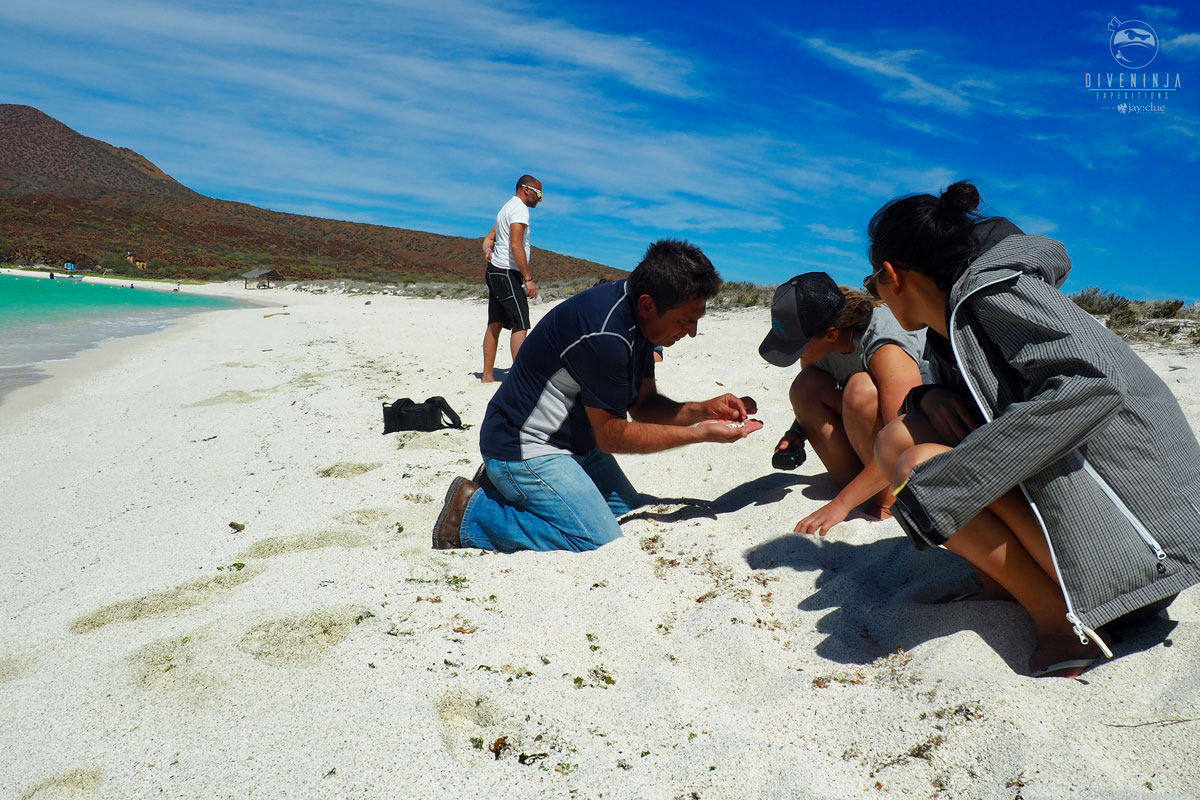
- The company should try to reduce its impact to the environment to a minimum. This involves noise disturbances, pollution, food wraps, local production of merchandising, avoiding single use plastics, and so forth. Their whole operation has to have sustainable standards.
- Of course, tour operators should approach wild animals following current regulations with extra care and with precautionary principles in mind when new situations arrive. In addition, wild animals are just that, wild. This means they will interact with us as long as they want to, so we should not interfere with their normal behavior… this includes feeding them to attract them! With enough patience and a bit of luck, sometimes you will see things you might not have even imagined, and it is always a privilege to interact with nature in its purest form.
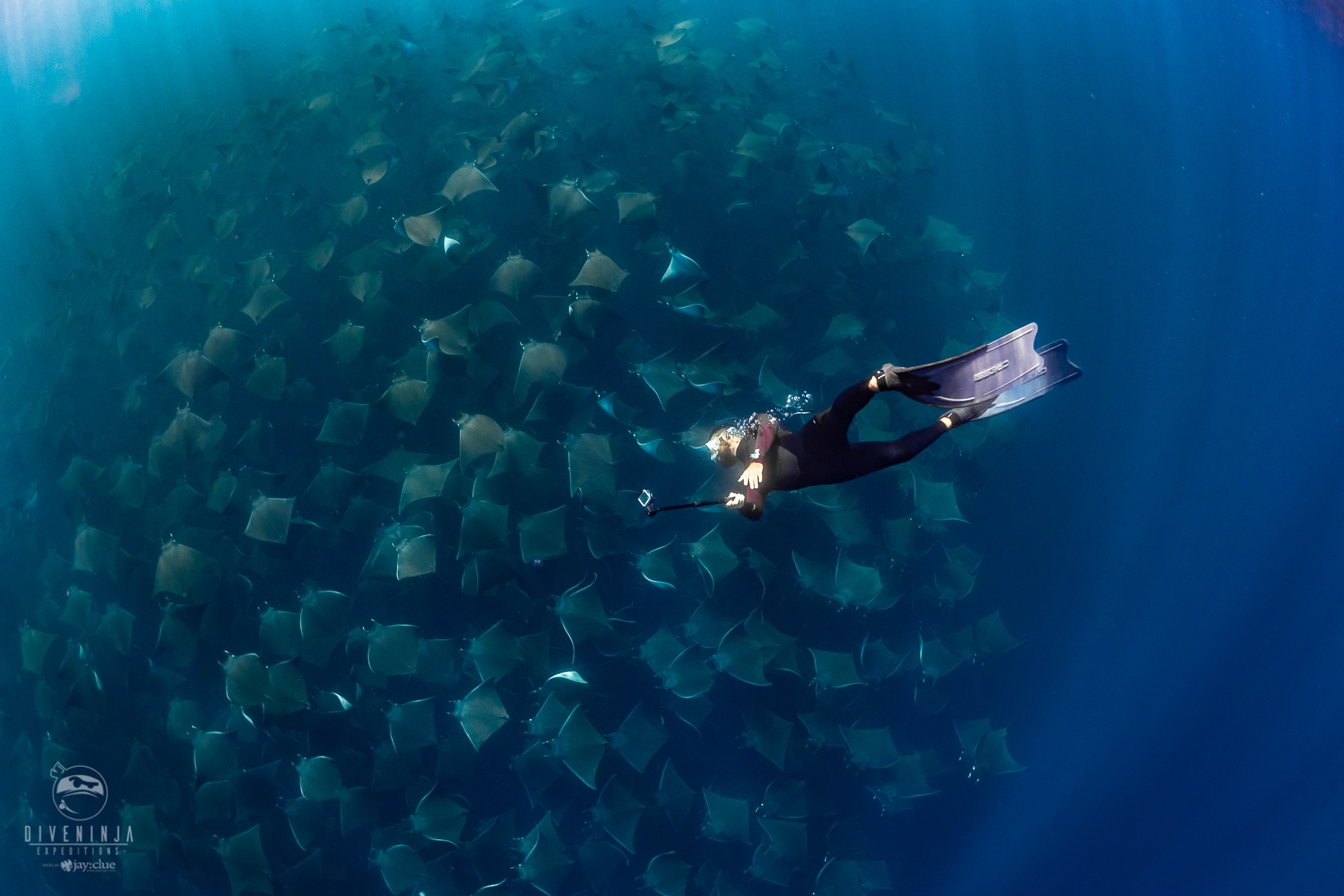
- In the best scenario, the company should have an interpretative educational program designed to increase people’s environmental awareness and pro-environmental behaviors towards the environment, not only in the place they visit, but also to take and implement back home. With social media these days, post-visit action resources can now be more easily implemented.
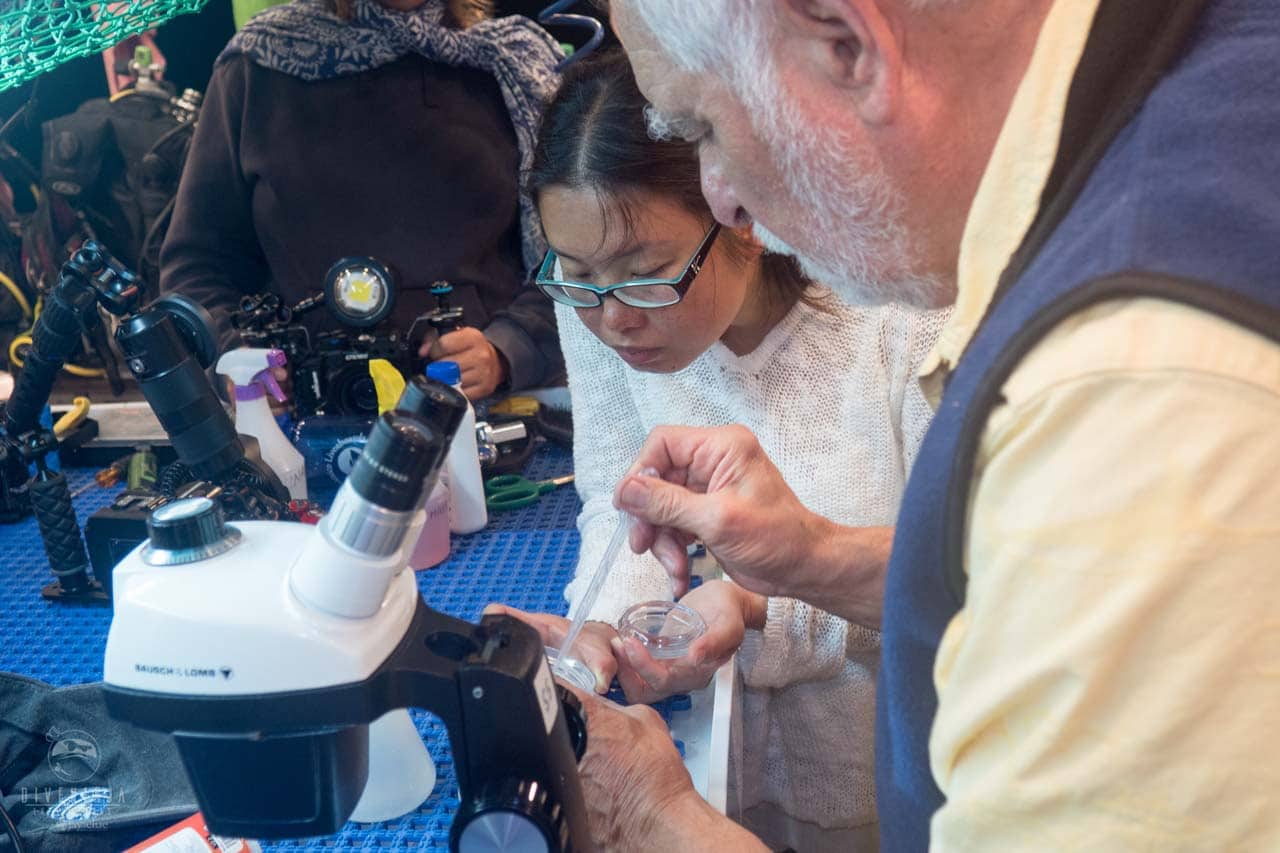
- When delivering the information, they should not “press the play button” and vomit it to you (sorry for the image) like a robot. They should take into account your personal experience, background and interests. They do not know more than you, they know different things. It’s this shared knowledge that enriches both sides of the communication process.
- Foreign companies have every right to work in the place, but must involve local people in some part of their operation. This could be done by buying local food for tourist’s meals, having local captains, or part of the tour guided by or with information provided by locals. This can certainly prove to be a plus for the tourist’s experience! Remember that ecotourism also involves cultural heritage.
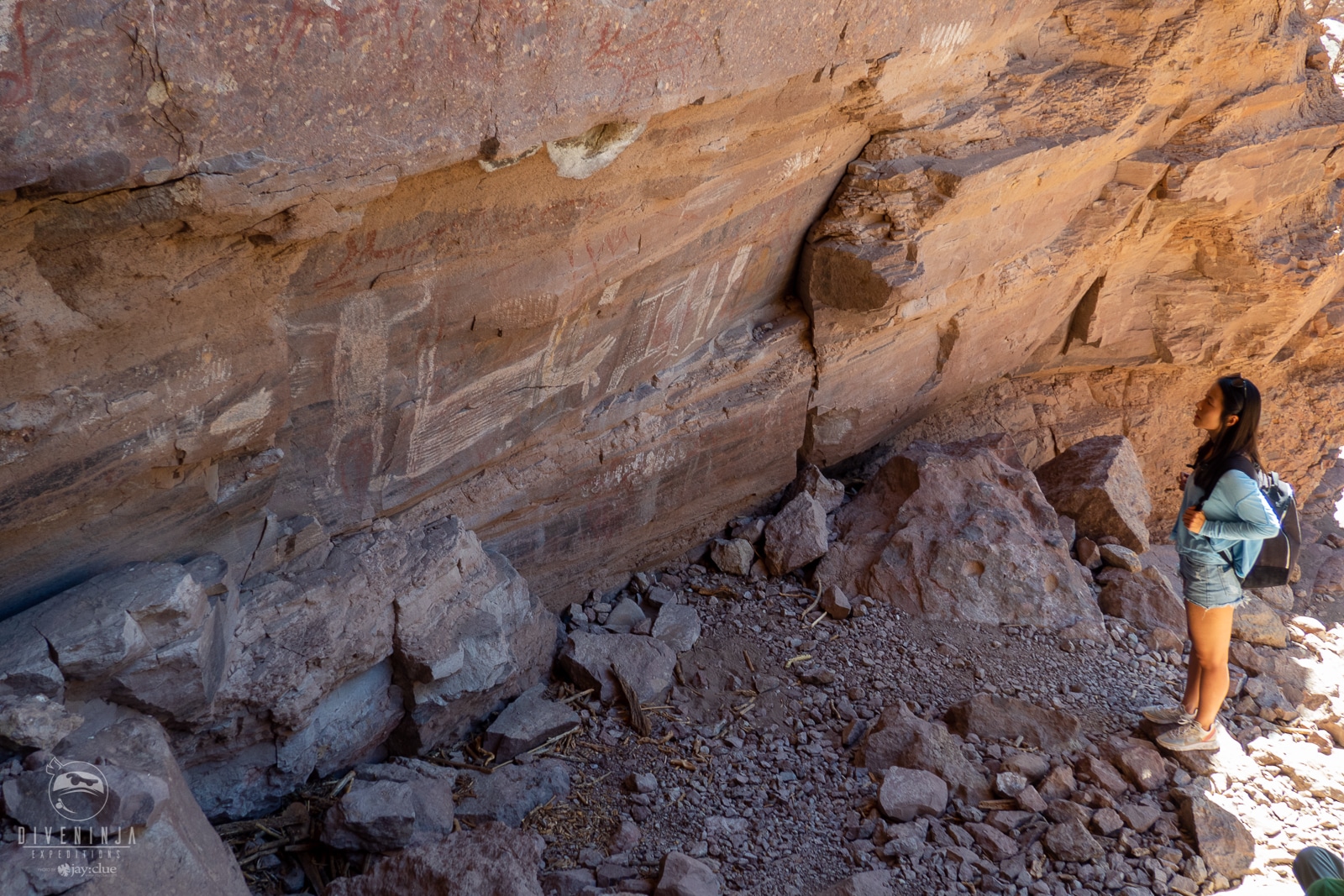
- Frequently we believe that having a biologist guide is the best option. Although sometimes this could be a plus, tourist guides with proper certifications, training and/or experience can be just as good or even better. Biology is a career where we are mostly trained to do research, and sometimes biologists don’t have the training, or even interest in science outreach or in guiding, so our degree is no warranty of quality interpretation. A well-trained tourist guide is someone that knows the proper sources of information and can deliver it to you in an accurate and serious, but fun way.
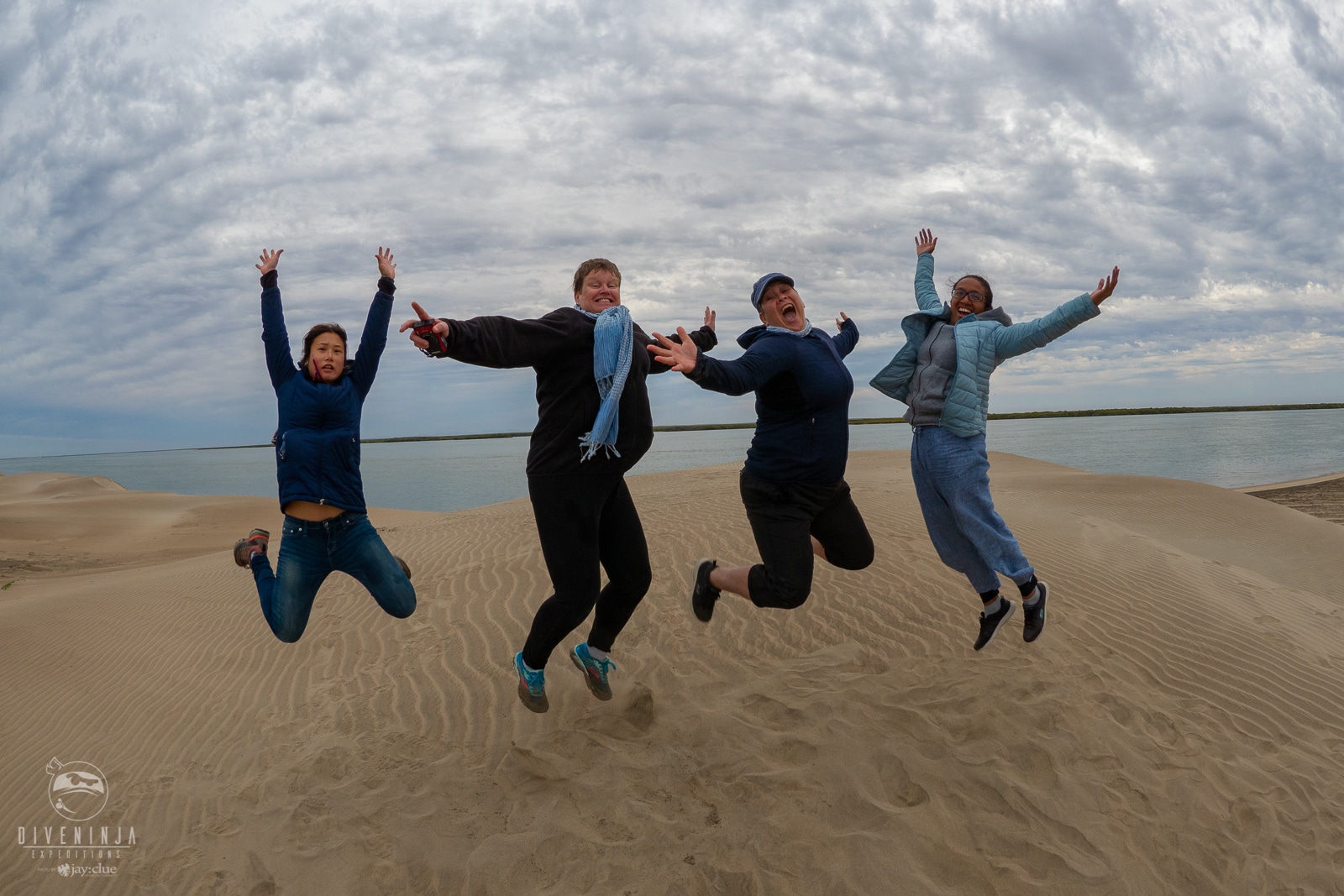
- Above all, passion is the key. Tourist guides should love and have passion for what they do. This is the best way to conserve, protect and transmit cultural and natural heritage to others.

While working on research this past winter I was able to meet and experience firsthand how some of the operators in Baja work. As an example of the above, one of the operators that welcomed me into their groups was Dive Ninja Expeditions in Cabo San Lucas. My experience with them showed they went above and beyond these requirements. They have well-experienced tour guides. They care about the local area and propose different solutions in trying to achieve zero waste policies and sustainable standards. They promote and help local businesses and people. They are involved in creating and actively participating in citizen science projects. And of course, they are very passionate and love what they do.
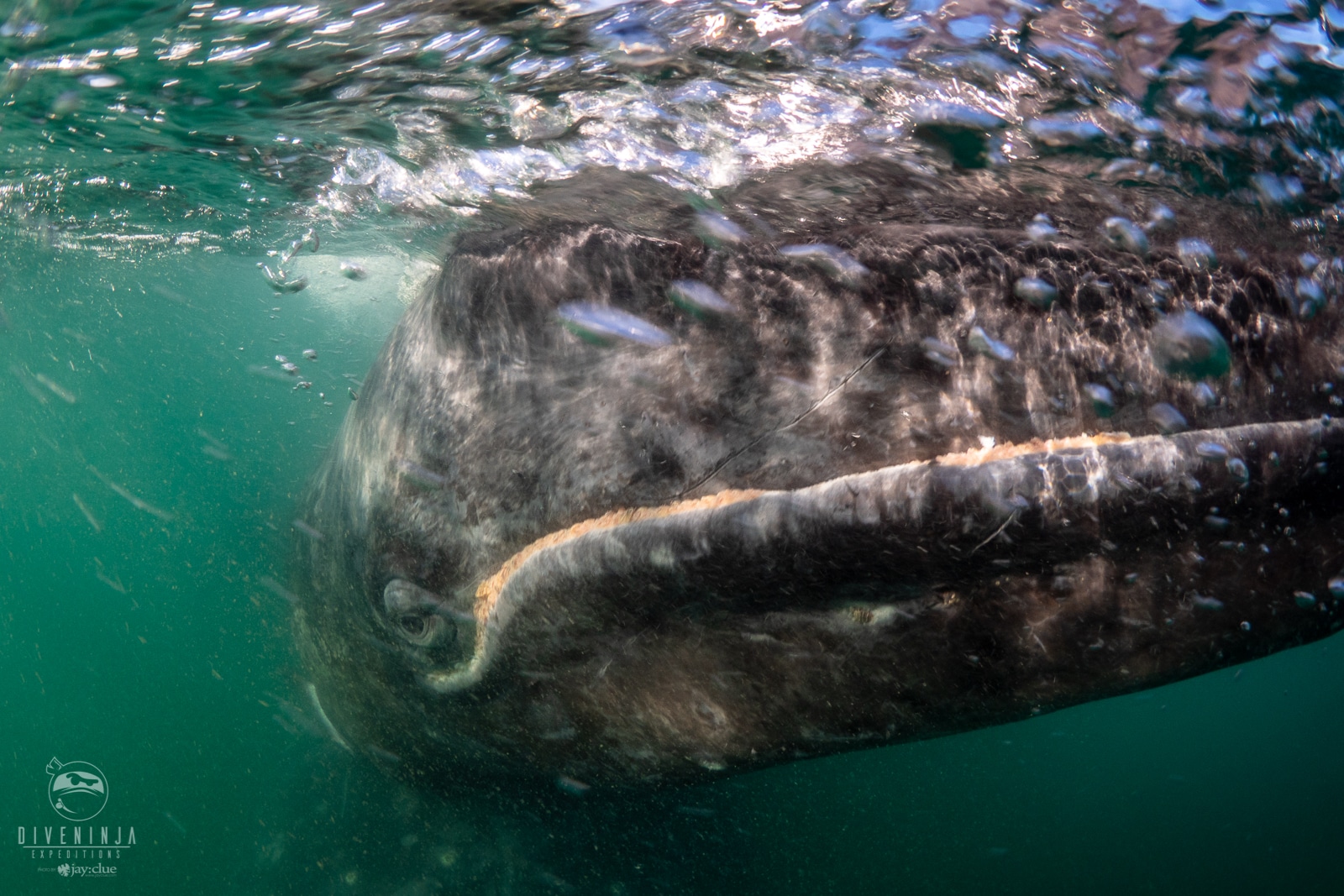
Ultimately what defines a true eco-tourism company is an organization that does not strive to be the best in the market, but instead they strive to be the best for the environment where they are. And so, I ask you, do you recall the last time you went on a trip with a true eco-tourism company?
Disclosure: Please bear in mind that this is my personal opinion and does not represent the institution I study in. If you have any doubts or comments, please feel free to contact me.
References
Ballantyne, R., & Packer, J. (2011). Using tourism free‐choice learning experiences to promote environmentally sustainable behaviour: the role of post‐visit ‘action resources’. Environmental Education Research, 17(2), 201-215.
Brochu, L., & Merriman, T. (2008). Personal interpretation: Connecting your audience to heritage resources.
Instituto Nacional de Ecología (INE), (1997). Programa de ecoturismo en áreas naturales de México. SEMARNAP-SECTUR.
SEMARNAT. (2019). Retrieved 7 September 2019, from http://aplicaciones.semarnat.gob.mx/estadisticas/compendio2010/10.100.13.5_8080/ibi_apps/WFServlet6b1e.html
Marine Life & Conservation
Leading UK-based shark conservation charity, the Shark Trust, is delighted to announce tour operator Diverse Travel as a Corporate Patron

 Corporate Patrons provide a valuable boost to the work of The Shark Trust. The Trust team works globally to safeguard the future of sharks, and their close cousins, the skates and rays, engaging with a global network of scientists, policymakers, conservation professionals, businesses and supporters to further shark conservation.
Corporate Patrons provide a valuable boost to the work of The Shark Trust. The Trust team works globally to safeguard the future of sharks, and their close cousins, the skates and rays, engaging with a global network of scientists, policymakers, conservation professionals, businesses and supporters to further shark conservation.
Specialist tour operator Diverse Travel has operated since 2014 and is committed to offering its guests high quality, sustainable scuba diving holidays worldwide. Working together with the Shark Trust will enable both organisations to widen engagement and encourage divers and snorkellers to actively get involved in shark conservation.
“Sharks are truly at the heart of every diver and at Diverse Travel, we absolutely share that passion. There is nothing like seeing a shark in the wild – it’s a moment that stays with you forever!” says Holly Bredin, Sales & Marketing Manager, Diverse Travel.
“We’re delighted to celebrate our 10th year of business by becoming a Corporate Patron of the Shark Trust. This is an exciting partnership for Diverse and our guests. We will be donating on behalf of every person who books a holiday with us to contribute towards their vital shark conservation initiatives around the world. We will also be working together with the Trust to inspire divers, snorkellers and other travellers to take an active role – at home and abroad – in citizen science projects and other activities.”
Paul Cox, CEO of The Shark Trust, said:
“It’s an exciting partnership and we’re thrilled to be working with Diverse Travel to enable more divers and travellers to get involved with sharks and shark conservation. Sharks face considerable conservation challenges but, through collaboration and collective action, we can secure a brighter future for sharks and their ocean home. This new partnership takes us one more valuable step towards that goal.”
For more information about the Shark Trust visit their website here.
For more about Diverse Travel click here.
Marine Life & Conservation
Shark Trust Asks Divers to help with Shark Sightings this Global Citizen Science Month

 Whether you are stuck for ideas of what to do with the kids or are off on the dive trip of your dreams. You can get involved in Citizen Science Month and help the Shark Trust by providing vital data about sharks are rays both close to home and further afield.
Whether you are stuck for ideas of what to do with the kids or are off on the dive trip of your dreams. You can get involved in Citizen Science Month and help the Shark Trust by providing vital data about sharks are rays both close to home and further afield.
In addition to reporting the sharks and rays you see on your dives, the eggcases you find on the beach, the Shark Trust is looking for some specific data from divers who are asked to report any Oceanic Whitetip and Basking Sharks.
Oceanic Whitetip Sharks
The Shark Trust are looking specifically for Oceanic Whitetip Shark sightings over the coming weeks and months. So, if you are diving anywhere in the world, please report your sightings via the website or app.
Website: https://recording.sharktrust.org/
App: Search The Shark Trust in your app store
The Oceanic Whitetip. Known for their incredibly long dorsal and pectoral fins, this species was once the most abundant oceanic-pelagic species of shark on the planet.
Large and stocky, they are grey or brown above, and white below and famous for their huge rounded first dorsal fin and paddle-like pectoral fins. The fins also highly prized within the shark fin trade. Whilst they are mostly solitary, Oceanic Whitetips do occasionally hunt in groups.
An inquisitive species, they were easy prey for fisheries. Combined with their low reproductive rate, they were inevitably at high risk of population depletion. And declines of up to 99% have been reported in certain sea areas. They are listed as Critically Endangered on the IUCN Redlist (2019).
Conservation efforts to discourage further declines include listing on CITES Appendix II and CMS Appendix I. They’re also the only species prohibited from take by all the Tuna RFMOs (Regional Fisheries Management Organisations). However, these measures do not mean that Oceanic Whitetips are not still caught – whether targeted or as bycatch – in some parts of the world. With populations declining at such a high rate, effective implementation of management measures is essential to ensure that the species can recover.
If you are lucky enough to get an image of an Oceanic Whitetip and you record your sighting on the Shark Trust app or website YOU CAN WIN! All images submitted with sightings, that also give consent to use in conservation messaging, will be in with a chance to win an Oceanic Whitetip T-shirt and mug. The competition will run until the end of “Shark Month” in July – so keep those sightings (and images) coming in.
Basking Sharks
Basking Shark (Cetorhinus maximus) season is upon us, and the Shark Trust is asking everyone to keep an eye out for these majestic giants over the summer months. If you see any, you can record your sighting to the Basking Shark Sightings database.
Each year, these mighty fish return to British waters to feed on plankton. You may see one, (or a few if you’re really lucky) from around April-October. They can be seen feeding at the surface of the water, where they look like they’re basking in the sun. Thus, their name!
Sighting hotspots around the British Isles include southwest England, Isle of Man, north coast of Ireland, and western Scotland. The Sea of the Hebrides is the most prolific sightings area in Scotland, but they have been spotted all around the coast and have even ventured into some of the sea lochs. The Shark Trust has received thousands of sightings since the Basking Shark project began, but more data is needed to truly understand what is going on with population numbers and distribution. You can help by recording your sightings this summer.
Great Eggcase Hunt
The Shark Trust has an Easter Egg Hunt with a difference for you to try. Take part in the Great Eggcase Hunt and get involved with a big citizen science project that helps shark, ray and skate conservation. And it’s an enjoyable activity for all the family.
The Shark Trust also want snorkellers and divers to record their underwater eggcase findings. Underwater records help pinpoint exactly where sharks and skates are laying their eggs and can help link to beach records. Learning the depth and substrate that they lay on also helps better understand the species.
Find out more: https://www.sharktrust.org/great-eggcase-hunt
Whether you are diving, snorkelling or exploring on the beach you can take part in Citizen Science Month and get actively involved in shark and ray conservation. Find out more: www.sharktrust.org
-

 News3 months ago
News3 months agoHone your underwater photography skills with Alphamarine Photography at Red Sea Diving Safari in March
-

 News2 months ago
News2 months agoCapturing Critters in Lembeh Underwater Photography Workshop 2024: Event Roundup
-

 Marine Life & Conservation Blogs2 months ago
Marine Life & Conservation Blogs2 months agoCreature Feature: Swell Sharks
-

 Blogs2 months ago
Blogs2 months agoMurex Resorts: Passport to Paradise!
-

 Blogs2 months ago
Blogs2 months agoDiver Discovering Whale Skeletons Beneath Ice Judged World’s Best Underwater Photograph
-

 Gear News3 months ago
Gear News3 months agoBare X-Mission Drysuit: Ideal for Both Technical and Recreational Divers
-

 Gear Reviews2 months ago
Gear Reviews2 months agoGear Review: Oceanic+ Dive Housing for iPhone
-

 Marine Life & Conservation2 months ago
Marine Life & Conservation2 months agoSave the Manatee Club launches brand new webcams at Silver Springs State Park, Florida









